Rightwing bid to change cabinet election
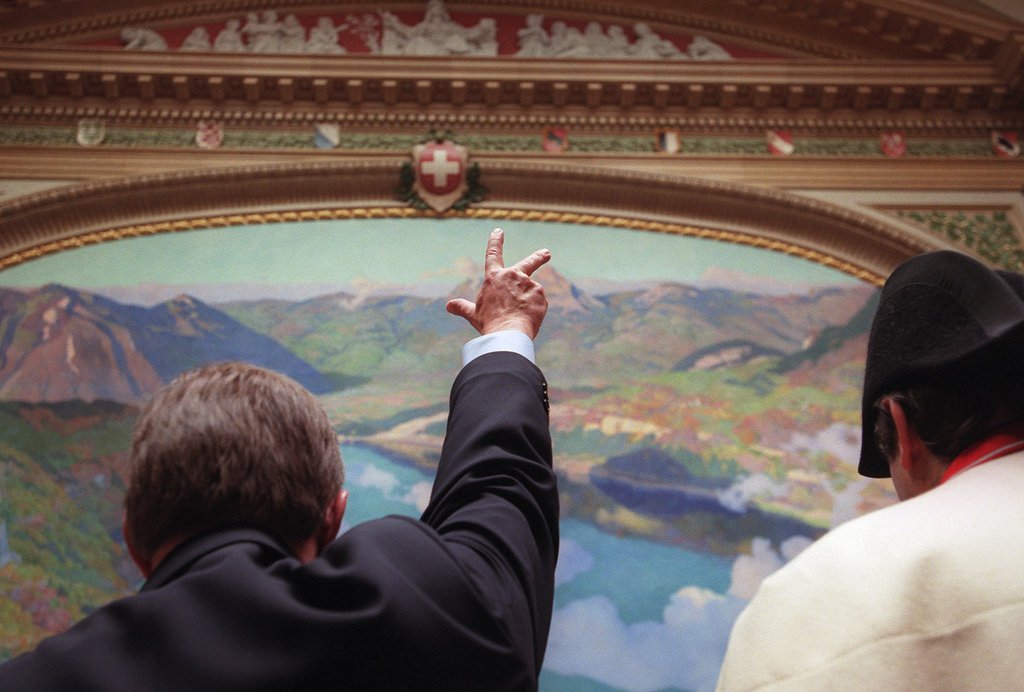
A proposal by a rightwing committee to introduce a nationwide election of cabinet members will be put to voters in June. Supporters say the reform would boost Switzerland’s system of direct democracy, while opponents fear permanent campaigning will become the norm.
Those opposed to the initiative, including the seven-member cabinet, argue the change in the constitution would lead to “American-style” costly and time consuming election campaigns for candidates, weakening parliament and undermining political stability.
The initiative – the third such attempt in the history of modern day Switzerland – is indeed aimed at overturning an element of the traditional system dating back to 1848.
Remarkably enough, the latest proposal was launched by members of the Swiss People’s Party, while the previous attempt in 1942 came from the opposite side of the political spectrum – the Social Democratic Party.
Although more than 70 years apart, the proposals have one thing in common. Both parties claimed – or argue now – , they were not represented or under-represented, in the multiparty cabinet.
At the time the left had no seat in cabinet at all despite being the strongest party in parliament. The right currently has one representative in the seven-member executive, following the non-election by parliament of justice minister and People’s Party strongman Christoph Blocher in 2007 and the subsequent power struggle within the party
The initiative’s backers gathered the required 100,000 signatures by 2011. The proposal has been rejected by parliament, but voters will have the final say on June 9.
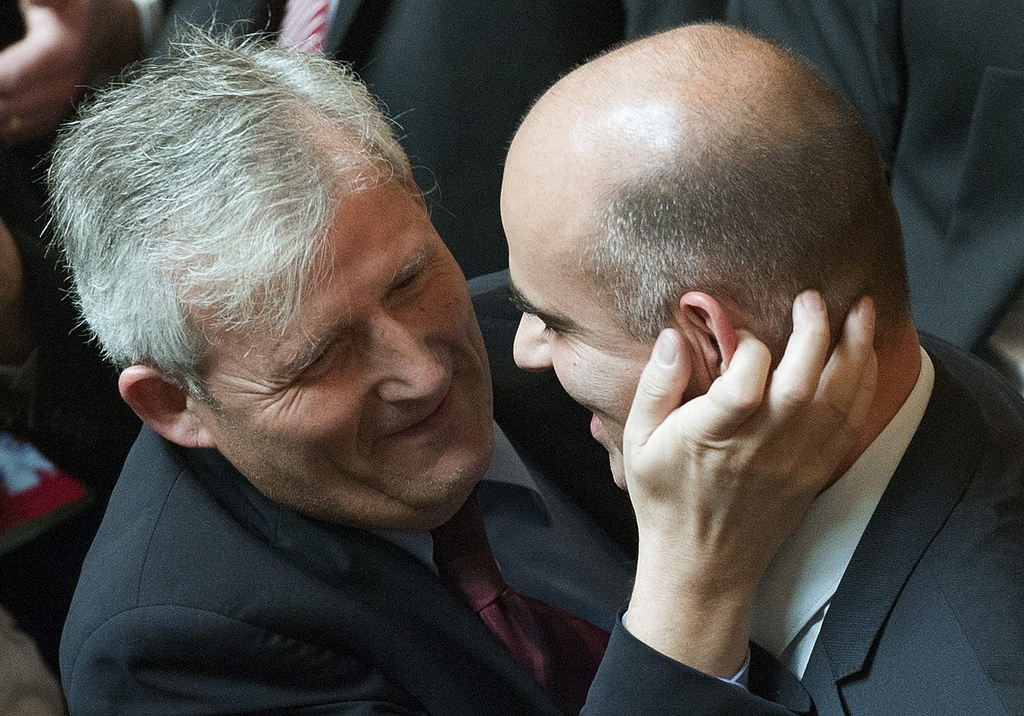
More
Cabinet elections
“Party intrigues”
People’s Party parliamentarian Hans Fehr hopes the initiative will put an end to the wrangling ahead of cabinet elections.
“The dirty tricks and party intrigues are unworthy of Swiss democracy,” he says.
Fehr believes a nationwide public election of cabinet members would enhance the government’s legitimacy and “complement the direct democratic system.”
Such an election would also force incumbent ministers to “work seriously and respect the decisions by the people”, according to Fehr.
He adds that the governments in all 26 cantons and in most of the more than 2,400 communes are elected by voters and not by a local or cantonal parliament.
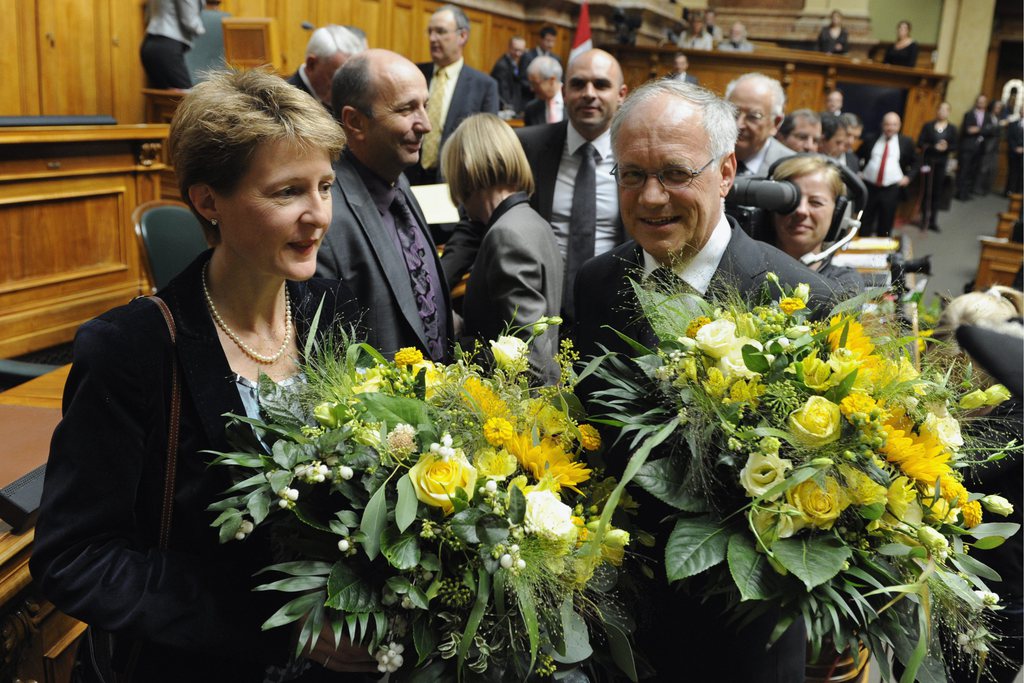
More
Money and faces could decide cabinet election
Comparisons
However, most opponents dismiss Fehr’s arguments. Radical Party Senator Raphaël Comte says a straight comparison between the national and local levels is skewed.
“It is much more difficult for voters to know about candidates from other cantons, in particular if they live in another linguistic region,” he says.
He adds that nationwide campaigning would interfere with the workload of incumbent cabinet members and undermine the system of collegiality among the seven government members.
“They might be keen to defend their own ideas at the expense of their cabinet colleagues in an effort to distinguish themselves and win voter support.”
Under the Swiss system, the seven-member cabinet takes collective decisions. The result of votes by individual members is not public.
The proposal for a nationwide election of cabinet members is one of two issues to come to a vote on June 9.
Voters also have a say on a parliamentary decision to tighten and speed up asylum procedures, a proposal challenged by the political left.
Beside the nationwide ballots there are also a number votes at a cantonal and local level scheduled on June 9.
As a rule, Swiss citizens vote four times a year on a broad range of issues.
Linguistic majority
The initiative foresees that cabinet members would be elected in a single constituency under a first-past-the post system, including a run-off ballot for candidates who failed to achieve an absolute majority of votes in the first round.
The proposal includes a guarantee for at least two seats for members of the French and Italian-speaking minorities alongside the German-language majority.
However, opponents including Christian Democratic Senator Filippo Lombardi from the southern canton of Ticino, say such a clause would make it virtually impossible for a candidate from the Italian-language region to compete successfully against a rival from the French-speaking part of the country.
Speaking for the cabinet, Justice Minister Simonetta Sommaruga has expressed concern that candidates might depend too much on wealthy and influential sponsors who fund an election campaign.
Under the current system, the seven-member cabinet is elected by parliament every four years following parliamentary elections.
Previous attempts to introduce the election by the people failed at the ballot box and at committee levels since the foundation of modern-day Switzerland in 1848.
A proposal by the Grütli labour movement in 1900 was rejected 65 per cent of voters and a renewed attempt by the Social Democratic Party was dismissed with nearly 68 per cent of votes against in 1942.
Other initiatives by parliament in the second half of the 20th century were all voted down.
A proposal by a Social Democratic parliamentarian, launched last December in parliament, is still pending. It calls for nationwide elections of cabinet members and the introduction of a nine-member cabinet, instead of seven.
Dialogue
Fehr for his part, dismisses these arguments saying it is easy enough for candidates to get their name known in all regions.
“All they have to do is take part in political rallies across the country. After all it is in the interest of a political party to present its best candidates.”
Fehr also dismisses allegations that the initiative is contradictory as it leaves parliament free to choose the Swiss president and vice-president, while individual cabinet members would be elected by the people.
The two posts are largely ceremonial and currently rotate among the seven ministers for a one-year term each.
“We just want a clear situation: Parliament should be chosen by the people, but it should no longer have anything to do with the election of the cabinet,” says Fehr.
Comte however warns that the introduction of separate election procedures could harm the dialogue between voters, parliament and the cabinet.
“There is a real danger that a government will be elected by the people, managing itself without a say by parliament. But in the end, parliament might be cut off from the people too,” he argues.

In compliance with the JTI standards
More: SWI swissinfo.ch certified by the Journalism Trust Initiative


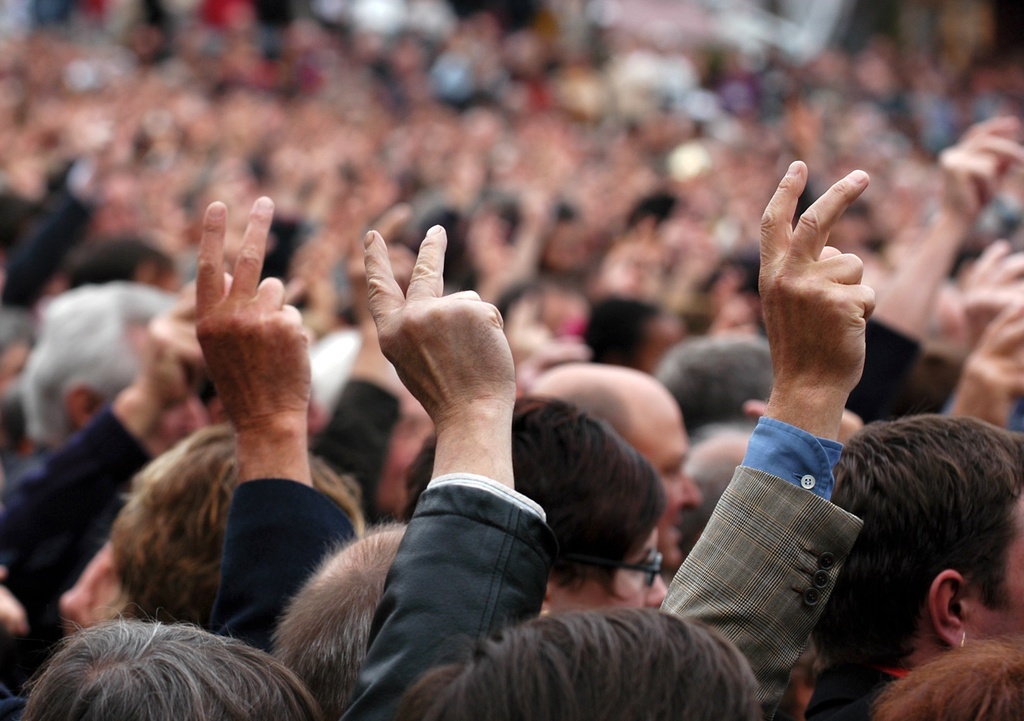
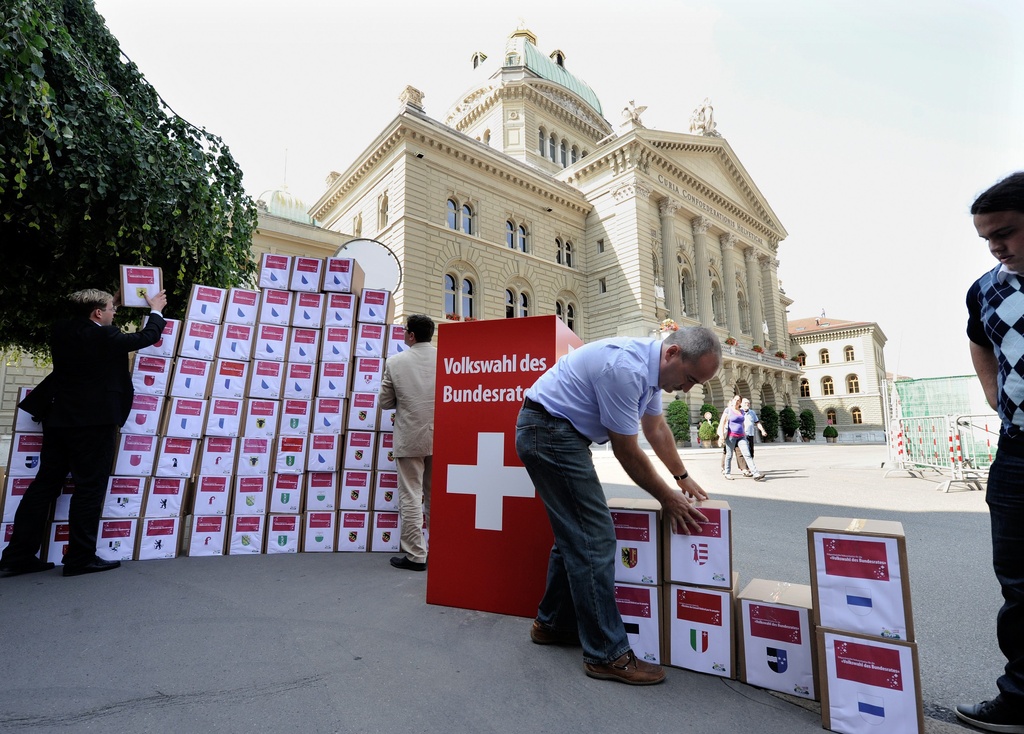
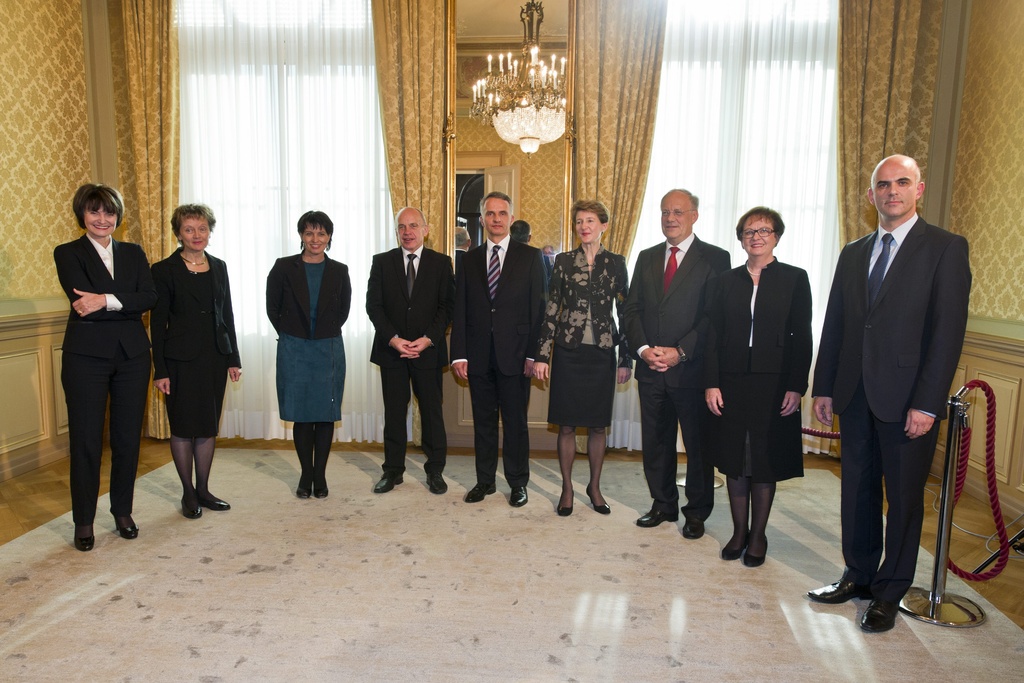

You can find an overview of ongoing debates with our journalists here. Please join us!
If you want to start a conversation about a topic raised in this article or want to report factual errors, email us at english@swissinfo.ch.